
Irvine Welsh is a Scottish novelist, playwright and short story writer. His 1993 novel Trainspotting was made into a film of the same name. He has also written plays and screenplays, and directed several short films.

The Colour of Magic is a 1983 fantasy comedy novel by Terry Pratchett, and is the first book of the Discworld series. The first printing of the British edition consisted of only 506 copies. Pratchett has described it as "an attempt to do for the classical fantasy universe what Blazing Saddles did for Westerns."

Lanark, subtitled A Life in Four Books, is the first novel of Scottish writer Alasdair Gray. Written over a period of almost thirty years, it combines realist and dystopian surrealist depictions of his home city of Glasgow.
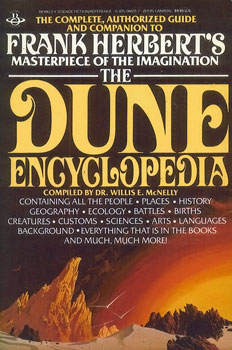
The Dune Encyclopedia is a 1984 collection of essays written by Willis E. McNelly and multiple other contributors as a companion to Frank Herbert's Dune series of science fiction novels.

Poor Things is a novel by Scottish writer Alasdair Gray, published in 1992. It won the Whitbread Novel Award in 1992 and the Guardian Fiction Prize for 1992.
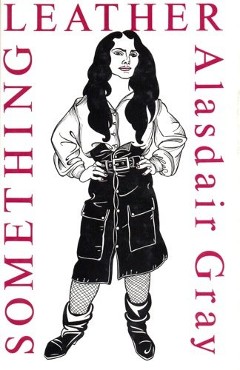
Something Leather is a novel-in-stories by Alasdair Gray which was published in 1990. Its framing narrative is the story of June's initiation into sado-masochistic activities by the female operators of a leather clothing shop in Glasgow.
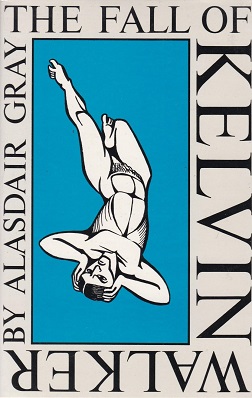
The Fall of Kelvin Walker is a novel by Alasdair Gray. The book was adapted from Gray's earlier play of the same title. It was originally published by Canongate in 1985 and the revised text was published by Penguin Books in 1986, ISBN 978-0807611449.
Canongate Books is an independent publishing firm based in Edinburgh, Scotland.
David Greig is a Scottish playwright and theatre director. His work has been performed at many of the major theatres in Britain, including the Traverse Theatre, Royal Court Theatre, Royal National Theatre, Royal Lyceum Theatre and the Royal Shakespeare Company, and been produced around the world.

Saraband of Lost Time is a science fiction novel by American writer Richard Grant, published by Avon Books in 1985. It is his first novel. Saraband of Lost Time placed eighth in the annual Locus magazine poll for best first novel, and received a special citation from the Philip K. Dick Award judges.
Scotland's National Book Awards, formerly known as the Saltire Society Literary Awards, are made annually by the Saltire Society. First awarded in 1937, they are awarded for books by Scottish authors or about Scotland, and are awarded in several categories.

Old Men In Love is a book by Alasdair Gray, published by Bloomsbury in 2007.
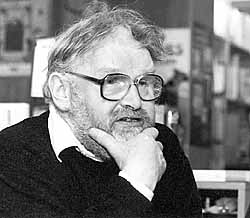
Alasdair James Gray was a Scottish writer and artist. His first novel, Lanark (1981), is seen as a landmark of Scottish fiction. He published novels, short stories, plays, poetry and translations, and wrote on politics and the history of English and Scots literature. His works of fiction combine realism, fantasy, and science fiction with the use of his own typography and illustrations, and won several awards.

69 Things to Do with a Dead Princess is an experimental novel by the British writer Stewart Home, first published by Canongate in 2002. It tells the story of a suicidal man investigating a conspiracy theory about the death of Diana, Princess of Wales, with much explicit sex and philosophical discussions, and was positively reviewed by The Times and the London Review of Books.
Pornotopia is an idea in critical theory describing an imagined space determined by fantasies and dominated by human sexual activity, expressed in and encompassing pornography and erotica. The word was coined by American literary critic Steven Marcus in his 1966 book The Other Victorians, deriving inspiration from nineteenth-century English literature on sexuality by moralists, physicians and erotic authors.

The novel in Scotland includes all long prose fiction published in Scotland and by Scottish authors since the development of the literary format in the eighteenth century. The novel was soon a major element of Scottish literary and critical life. Tobias Smollett's picaresque novels, such as The Adventures of Roderick Random and The Adventures of Peregrine Pickle mean that he is often seen as Scotland's first novelist. Other Scots who contributed to the development of the novel in the eighteenth century include Henry Mackenzie and John Moore.
Graham Eatough is an English theatre director and playwright, based in Scotland. He was a founding member of theatre company Suspect Culture.
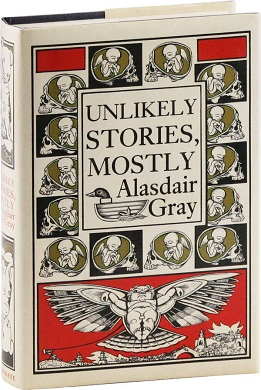
Unlikely Stories, Mostly is the first collection of short stories by Alasdair Gray, published in 1983.
Alasdair Gray (1934–2019) wrote novels, short stories, poetry and drama.
Alan Fletcher was a Scottish artist. He has been described as “one of the most exciting young artists of his generation”.














